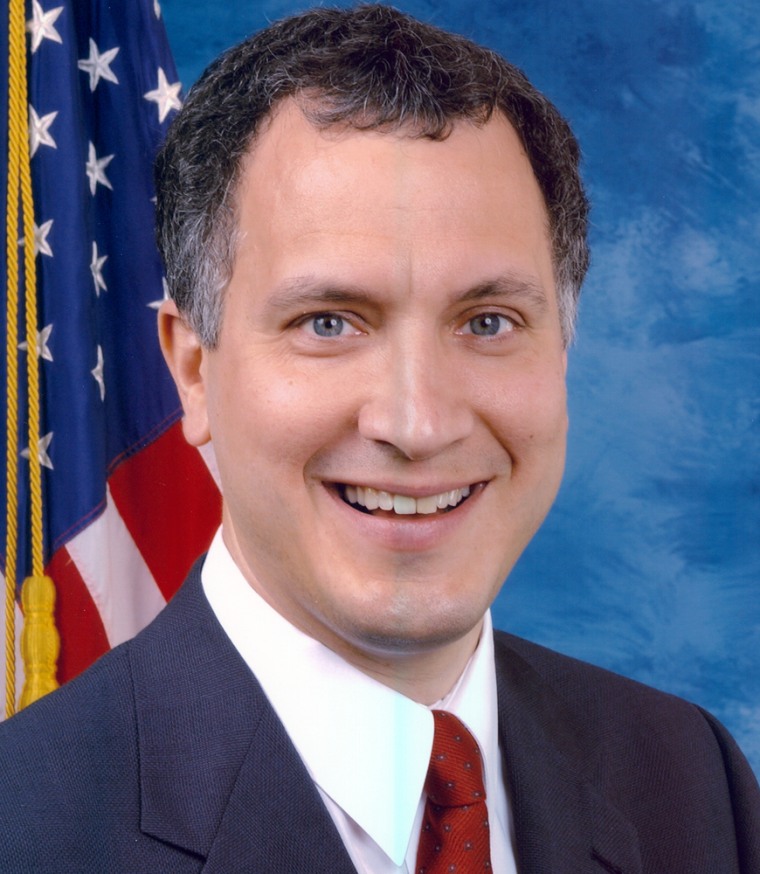On a furnace-hot Memorial Day at the Soldiers’ Memorial Field in Rochester, Minn., Amy Klobuchar, the front-runner for the Democratic Senate nomination, offered an instructive case study in how to run as an anti-Iraq war candidate — without calling for a date for withdrawing U.S. soldiers and without calling for a cutoff of the war’s funding.
“These guys told us that there were weapons of mass destruction — and there weren’t. They told us the mission was accomplished and it wasn’t,” Klobuchar told a Democratic Party picnic.
She said the nation is debating “what’s the best way to get out of this war responsibly.”
Later, in an interview by the banks of the Mississippi River in St. Paul, Klobuchar called the war “a policy fiasco.”
“We weren’t told the truth about the weapons of mass destruction and why we went in there,” she said. “I am not one that says we should immediately withdraw from the war. I don’t believe that would be the responsible thing to do.” But, she said, “we should bring a significant number of the troops home this year.”
A left-of-center challenger
Klobuchar is county attorney for Hennepin County -- the state's largest -- which includes a quarter of Minnesota's population. If she wins the Sept. 12 primary against veterinarian/oncologist Ford Bell, she’ll face three-term Republican Rep. Mark Kennedy in November to fill the Senate seat vacated by the retiring Democrat Mark Dayton.
Klobuchar is well within the liberal Democratic mainstream.

Her campaign has received financial backing from Sen. Hillary Clinton’s political action committee (PAC), the trial lawyers association, Senate Minority Leader Harry Reid’s PAC, several labor unions, the Human Rights Campaign (the leading gay rights group), and Emily’s List, which champions Democratic women who support abortion rights.
Yet all this isn’t good enough for Ford Bell.
His grievance with Klobuchar is that she won’t call for a deadline for withdrawing American troops from Iraq and won’t endorse single-payer health insurance, as Bell advocates.
Although as of April 1 Klobuchar had $2.5 million in her campaign treasury — more than ten times as much as Bell — and in March Klobuchar led Bell 77 percent to 16 percent in non-binding straw polls at Democratic precinct caucuses, Bell is taking his fight to the September primary.
Bell said he’d pull out of the race if Klobuchar adopted his stands on the war and health insurance.
She laughs at what she sees as the absurdity of this idea. “I’m not going to be pushed around like that,” she said.
The Bell effort -– no matter that it might seem quixotic to some observers -- reflects a nationwide trend this year: left-of-center, anti-Iraq war candidates challenging the Democratic Party establishment’s favorites: Ned Lamont taking on Sen. Joe Lieberman in the Aug. 9 Connecticut primary; Bill Scheurer trying to mount an independent bid in Illinois against Rep. Melissa Bean, and failed attempts by two abortion rights Democrats to beat Bob Casey in the Pennsylvania Democratic Senate primary.
Bell said his message to Democrats in Minnesota is that the party establishment in Washington, D.C. ought not be allowed to choose Klobuchar and have their pick OK’d by Minnesota voters: “What party is this? Are we our own party or are we an extension of the national Democratic Party? Why are they intervening?”
He admits he faces a David v. Goliath battle, but said, “Paul Wellstone was outspent eight-to-one by Rudy Boschwitz and he won. Paul had a message; Amy Klobuchar has no message.”
Touchstone issues: Security and oil

For his part, Republican Kennedy will make national security a dominant issue.
“How you win the war on terror is going to be one of the top issues” in this race, Kennedy said. “Clearly there have been mistakes made in the war on terror. And there have been corrections made. But the real question is: what is your focus? Is your focus just impeaching the president and having partisan investigations? Or is your focus on how to win the war on terror, how do we keep America safe?”
Responding to Kennedy's remarks, Klobuchar's campaign manager Ben Goldfarb said that impeachment of Bush "is definitely not something she (Klobuchar) is advocating or campaigning on."
Kennedy said Klobuchar has said she “would vote against body armor for our troops, in the form of coming out against the (December 2005) defense appropriations bill that, yes, had ANWR in it, but Nancy Pelosi and over half the Democrats in the House voted for it.”
The “ANWR” reference means the issue of oil drilling in Alaska’s Arctic National Wildlife Refuge. (Kennedy has voted against ANWR drilling on other occasions.)
He assailed Klobuchar as “somebody who says appealing to some special interest is more important to her than assuring that our troops have the tools they need to win the war on terror.”
Klobuchar responded by saying, “I would have voted in voted in favor of supporting our troops and defense appropriations, but clearly this was a game, a gambit, and he called it that.”
The Republican leaders in Congress, she said, “knew very well that the people who were opposing drilling (in ANWR) as he does and Sen. Coleman does, wanted to support our troops, as do I. The one who was playing political games was him, (Kennedy) since he was against the drilling and then he went and voted for it.”
A referendum on the president?
Kennedy spent the Memorial Day weekend visiting small groups of Republican loyalists in western Minnesota, an area he once represented in the House before the 2000 redistricting. He now represents the northern Twin Cities suburbs and St. Cloud.
In an interview as he ate ice cream at a Dairy Queen in Montevideo, Minn. Saturday, Kennedy said that his battle with Klobuchar — who he presumes will be his opponent — won’t be a referendum on President Bush.
“There are people who don’t like President Bush; there are people who like President Bush,” Kennedy said. “Whether he’s campaigning for me or not, I don’t think it’s going to influence the outcome….There’ll be a lot of folks trying to make the campaign about President Bush, but the real issue will be the stark contrast on the issues” between himself and Klobuchar.
And there is a divide: he is staunchly anti-abortion.
He also voted for a constitutional amendment to outlaw same-sex marriages. She opposes the amendment.
Kennedy slams Klobuchar for opposing the nomination of John Roberts to be chief justice.
She also opposed Bush Supreme Court nominee Samuel Alito partly because he was replacing Justice Sandra Day O’Connor “who was a swing vote.”
She fends off questions about whether she’d support a future Democratic president using his or her Supreme Court appointments to move the court to the left just as Bush has moved the court to the right.
The Conventional Wisdom among political operatives is that voters don’t like to see a male candidate rough up — rhetorically and in his ads — a woman opponent.
Klobuchar is going to be a delicate assignment for Kennedy: she has a witty, self-deprecating personality; she’s at ease with herself; she doesn’t seem doctrinaire or brittle, as some Democratic women candidates do.
She does have potential liabilities — she favors abortion rights in a state where the anti-abortion movement is strong and where two of the state’s four Democratic House members, James Oberstar and Collin Peterson, have solid anti-abortion voting records.
She won’t rule out filibusters of Republican presidents’ future Supreme Court nominees, “I’m not opposed to ever using a filibuster by any means,” a stance which will give conservative groups fodder to attack her.
And unlike some Democratic candidates this year she forthrightly says she will seek to raise taxes on people who make over $200,000 – “rolling back the Bush tax cuts” is how she phrases it.
